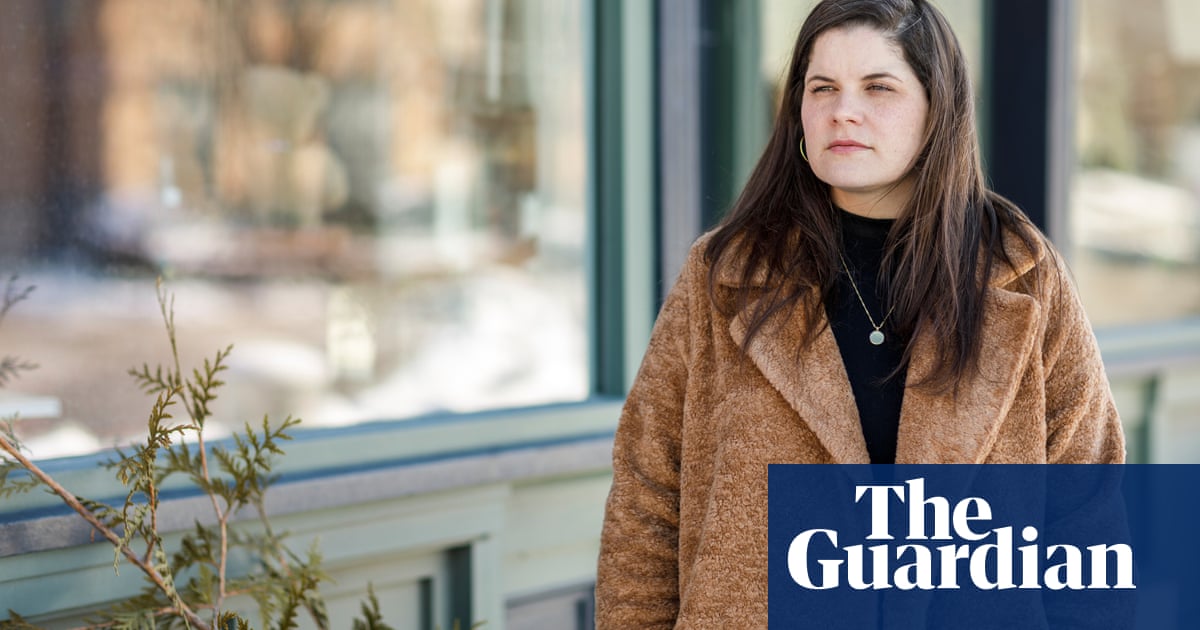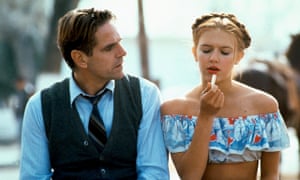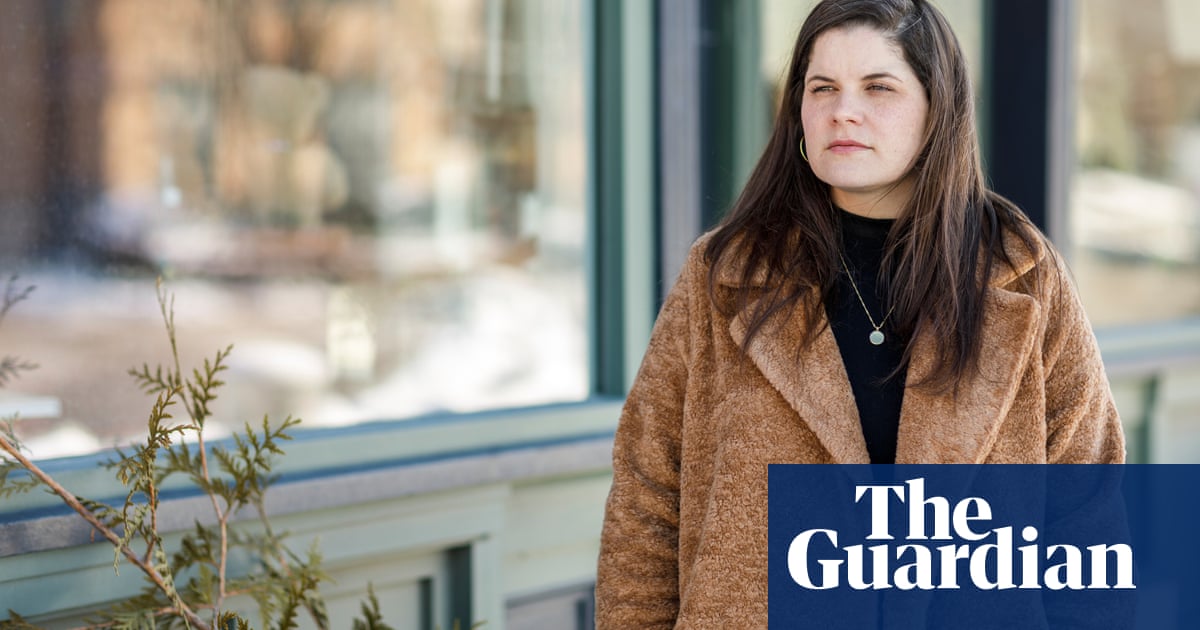Is My Dark Vanessa the most controversial novel of the year? Author Kate Elizabeth Russell speaks out
Exploring issues of abuse and consent, Russells novel My Dark Vanessa could not be more timely. She talks about the pressure to write a likeable victim and the line between fiction and memoir

When, in 2018, Kate Elizabeth Russells agent presented publishers with her first novel, My Dark Vanessa, about a sexual relationship between a 15-year-old girl and her English teacher, the #MeToo movement was in full flight. As women across the world were sharing stories and exposing the ways men had used power to abuse and silence them, here was a book, 18 years in the writing, that examined themes of consent, coercion, memory and the nature of victimhood. Initially, Russell was anxious about the timing. I didnt want to come across as opportunistic or have it cheapen my work somehow, she recalls. But then I realised those worries were about how people might perceive it and not about what my book was. And I really believed that I had written a good book and that I had something meaningful to contribute.
But there were greater anxieties to come. In January this year, the author Wendy Ortiz criticised Russells substantial publishing deal and suggested the books plot was eerily similar to her own 2014 memoir, Excavation, which described how she was groomed by a teacher when she was 13. Ortiz, a Californian of Mexican descent, tweeted about how she had struggled to get published on account of the difficult subject matter. She complained that in an industry that is continually taken to task for being extremely white and making decisions that reflect as much, here is a seven-figure book deal for a fiction book that is being marketed similarly to my book. Russell emailed Ortiz and offered to send her a copy of My Dark Vanessa (Ortiz admitted she hadnt read it), but she didnt get a reply.
Russell had indeed read Ortizs memoir while researching her novel, along with 80 or so other titles autobiographies, novels, plays and clinical studies of sexual abuse and paedophilia among them. Research was a crucial part of her process, not least because, in the final years of its creation, the book formed her dissertation for a creative writing PhD. Nonetheless, as the furore intensified on social media, Russell decided to take a step back, and deleted her Twitter account. It got really intense and really personal very quickly, Russell tells me afterwards.
The row also raised questions about who gets to tell which stories, and whether memoirs are more authentic than novels. Most distressing for Russell, who is 35, were the questions about whether her novel was based on her own experiences of abuse as a teenager something that she had long ago resolved not to discuss and the implication that she needed to prove her credentials for writing about sexual trauma. I tried to draw a boundary really early on, she says. I knew it was going to be tough. I always anticipated there would be questions, and certain assumptions, but I didnt foresee this. It was with some reluctance that Russell put out a short statement on her website confirming that the book had been inspired by various experiences when she was a teenager. I do not believe we should compel victims to share the details of their personal trauma with the public, she wrote, noting that opening up further about my past would invite inquiry that could be retraumatising.
When I first meet Russell in November over a cup of tea at her publishers office in London, the Ortiz controversy has yet to blow up (Oprah has since dropped My Dark Vanessa from her Book Club). She is shy, softly spoken and a little overwhelmed by the hype around her novel, which has earned plaudits from Gillian Flynn, Stephen King and Cat Person author Kristen Roupenian. After years spent studying in near-penury, having money in the bank feels weird, Russell tells me. She had always told her husband, who works in academia: Ill move wherever you get a job, just dont expect me to bring in money.
In the book, Vanessa is an awkward outsider at her new boarding school and is flattered by the attentions of Jacob Strane, a 42-year-old English teacher who lends her books and compliments her attempts at poetry. As they spend evenings in his office and, later, at his home, the relationship becomes physical. The book moves back and forth in time between Vanessa as a schoolgirl, and as a chaotic, self-loathing 32-year-old who works as a hotel receptionist by day, and spends her evenings smoking pot or having sex with men she doesnt care about. The older Vanessa is still in touch with Strane, who has been accused of sexual abuse by another former student (though #MeToo isnt directly referenced, Vanessas adult narrative plays out against a rising tide of public accusations of sexual harassment and abuse). Strane, who denies the allegations, leans on Vanessa for support. Meanwhile, she pledges to keep quiet about their past relationship, which she still regards as a great love affair rather than statutory rape.

Russell has been writing ever since she can remember. She grew up in a small town in Maine on the edge of a lake (a detail echoed in Vanessas isolated, lakeside home). Her father worked as a local radio DJ and her mother was in the hotel business. Russell kept a journal throughout her early teens, which would prove invaluable in helping her get to grips with the teenage mindset while she was writing young Vanessa. At 14, she read Vladimir Nabokovs Lolita its the first book that Strane gives to Vanessa and was electrified by it. But even then, I saw those glimpses of [Lolitas] sadness and hopelessness. And I saw myself in the book, and it made me aware, very suddenly, of the way this archetype was so embedded in the culture I was living in. She recalls Britney Spears dressed as a midriff-baring schoolgirl in the video Baby One More Time, and later being photographed by Rolling Stone in her underwear on pink satin sheets cuddling a Teletubby doll. At the same time, Russell began noticing adult men looking at her and her friends differently. Because at that age I still saw myself as a kid, but the world suddenly seemed not to. [Its] that weird age where you feel like youre on the cusp of something. You feel powerful and you feel dangerous.
Russell was in her late teens when she dreamed up the central characters of her novel, and they lived in her mind, and in endless drafts, throughout her undergraduate years. Five years later, with a degree and a masters under her belt, she was still no closer to finishing the book. She would put her characters in different settings and structures; peripheral figures would come and go. As the years went by, Russell became increasingly frustrated with Vanessa and Strane, but never bored.
I think I didnt fully understand the material that I was trying to work with, she reflects. [At first] I definitely saw the relationship between an older man and a younger girl as romantic in the same way that Wuthering Heights was romantic, or Jane Eyre. To me, great love stories were also stories that were full of abuses and control. I often jokingly refer to the early versions of my characters as teacher Twilight. But as I grew up I feel like the characters grew up too. In 2013 Russell began her PhD at the University of Kansas. I decided: Well, Im going back to school one more time, and Im going to give it my best shot and get this written once and for all.
Her research was wide-ranging I tried to consume and engage with as many different portrayals of abuse as I could. Because I wanted to be sure I got it right. She found The Kiss by Kathryn Harrison, about a sexual relationship that the author began with her estranged father when she was 20, immensely powerful, though was depressed by its critical reception. [Harrison] was so insistent on looking at her own complicity in that relationship, Russell says. When it was published [in 1997], she was just skewered. The headline of one of the reviews I found was: Do you think she called her dad Daddy in bed?
She watched the film Spotlight, about the Boston journalists who uncovered the widespread abuse of children by the citys Catholic priests, and The Hunting Ground, a documentary on the failure of US colleges to properly investigate cases of sexual assault on campus. A local news story in Maine about a pillar of the community who killed himself after he was investigated for abusing young boys had a big influence on her plot. It turned out that he had been in contact with one of his victims, who was now a grown man, before he died.
Russell has long been careful not to portray Strane as a monster: I had to really dig in and make him complex, and let the reader get glimpses of him letting his guard down a bit and showing that he is aware of what hes doing, but also what he sees as ethical boundaries. In one of the books more chilling moments, we learn that Strane has had a vasectomy. He tells Vanessa this as he prepares to have sex with her for the first time: You wont get pregnant. Just relax, he says. The older Vanessa finds his archived medical records, which state patient is unmarried but insistent in not wanting children. Strane knows he cant be trusted around children, even his own.
Vanessa is similarly complex and often infuriating in her reluctance, as an adult, to comprehend what has happened to her. It is a testament to the authors insight that she refuses to make Vanessa a good victim. While she was workshopping the character, feedback from her supervisors was often less than positive. They would say, Urgh, shes so unlikable. Shes unrelatable. She doesnt make sense. I had a lot of encouragement to write instead from the teachers point of view. I did try it out and I got a lot of praise when I did. I had a professor who told me: Its when we see her through his eyes that she really comes alive. But that didnt feel right to me.
While Russell is understandably reluctant to be drawn on her past relationships, she tells me that Vanessas situation is one that many women will be able to relate to. Her struggles are, in a lot of ways, universal I did have experiences when I was a teenager with older men that absolutely informed the book, but those experiences were different. To call the book anything other than fiction would misrepresent it and misrepresent myself.
We talk about the fact that, early on in My Dark Vanessa, the girls at the school are given rape whistles, and realise that we were both given them as teens, too. In the book Vanessa asks, Do the boys get whistles?, which makes her classmates roll their eyes in exasperation. I wanted to put that scene in early to signal that this isnt just about what happens to a girl at the hands of her teacher, but a much larger systemic enablement of abuse, says Russell. Its not happening in a vacuum. Its putting the onus on girls to protect themselves and its also admitting defeat. In some ways, its the first step in isolating girls from one another. [The message is] its dangerous out there and its coming for you no matter what. And the only thing that you can do is try to make sure it doesnt happen to you.
I ask Russell if recent events, from #MeToo to the Harvey Weinstein trial (when we meet, he hasnt yet been convicted) are cause for optimism. She pauses and lets out a sigh. I dont know about optimism but maybe hope, she replies. I think progress is incremental. #MeToo has allowed people to realise they are not alone in their experiences, which is important. I think the abuse, and the enablement of abuse, is still there, but the conversation is changing, and there is so much great art coming out of this moment. Thats got to be a start, right?
My Dark Vanessa by Kate Elizabeth Russell is published by Fourth Estate on 31 March (RRP 12.99). To order a copy go to guardianbookshop.com. Free UK p&p over 15.
Read more: https://www.theguardian.com/books/2020/mar/13/kate-elizabeth-russell-my-dark-vanessa-interview
